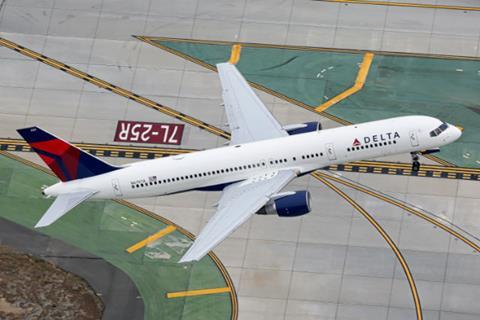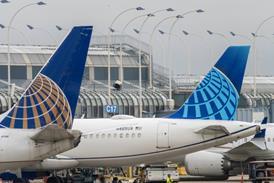The Federal Aviation Administration will require inspections of Pratt & Whitney (P&W) PW2000s powering Boeing 757s and C-17s, saying disks in the engines are subject to defects similar to those affecting PW1000G geared turbofans (GTFs).
The US government on 30 May released a proposed airworthiness directive (AD) targeting 484 US-registered PW2000-family turbofans that “are among the products affected” by the defect, which involves “powdered-metal manufacturing”.
Affected parts include high-pressure turbine [HPT] first-stage disks and turbine hubs.

The powder-metal problem has P&W currently working through a recall affecting thousands of PW1000G-family engines that power Airbus A320neos-family jets, A220s and Embraer E-Jet E2s.
“There is an increased risk of failure for additional nickel-powdered-metal parts in certain nickel-powdered-metal production campaigns, and these parts are susceptible to failure much earlier than previously determined,” the FAA’s latest proposal says.
“This proposed AD would require repetitive angled-ultrasonic inspections of certain high-pressure turbine first-stage disks and turbine hubs for any crack indications, and if necessary removal from service and replacement,” the notice says.
Airlines would need to complete the inspections at the time of every future “piece-part exposure”.
Affected PW2000s power Boeing 757s and the US Air Force’s fleet of Boeing C-17 Globemaster heavy lifters, which have an engine variant called the F117-PW-100.
Of the 484 PW2000s on US-registered aircraft that would need inspections under the FAA’s proposed rule, 13 would also need replaced HPT “lenticular seal assemblies”.
US airlines, including Delta Air Lines, FedEx and UPS, operate some 215 PW2000-powered 757s, while the USAF’s C-17 fleet stands at 219 aircraft, according to fleet data provider Cirium.
“This AD is in line with previous service bulletins provided to operators and requires inspections of certain components originally provided as spares,” P&W says. “The inspections will be conducted during scheduled overhauls. There are no new part-life limitations and no groundings will be required.”
P&W issued the service bulletins addressing the issue on 1 May and 2 May.
In issuing its proposal, the FAA cites the 24 December 2022 failure of a PW1100G’s HPT “seventh-stage integrally bladed rotor”.
That failure led the pilots of the jet – an A320neo reportedly operated by Mexican carrier Viva Aerobus – to abort take-off. The issue was traced to a “nickel powdered metal anomaly” that can cause parts to fail “much earlier than previously determined”.
Boeing did not immediately respond to a request for comment.


























